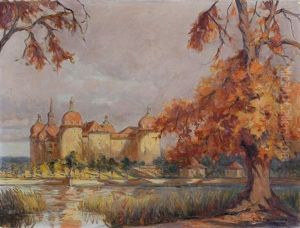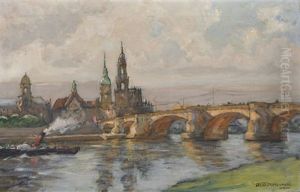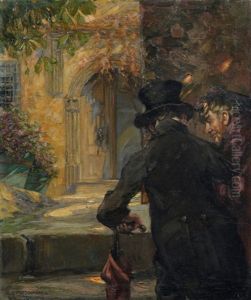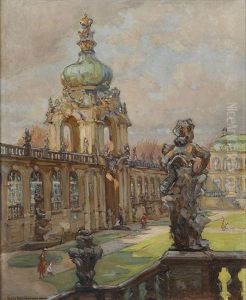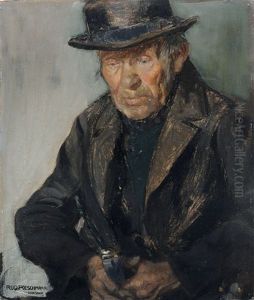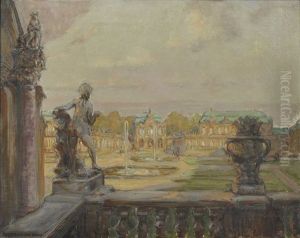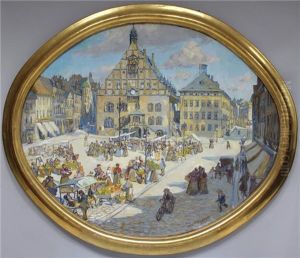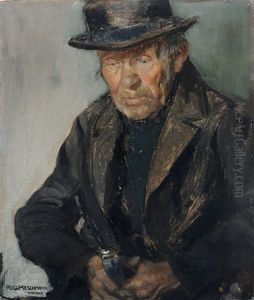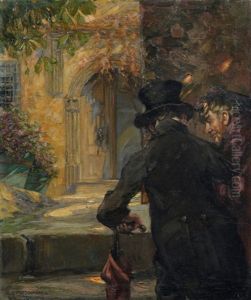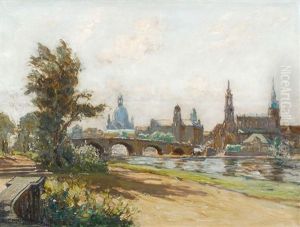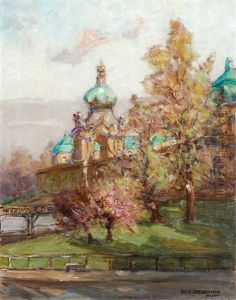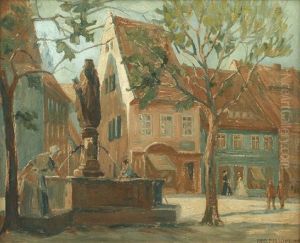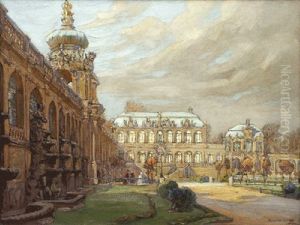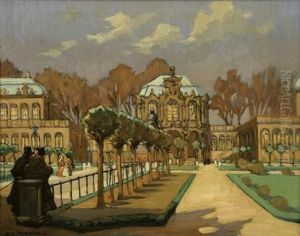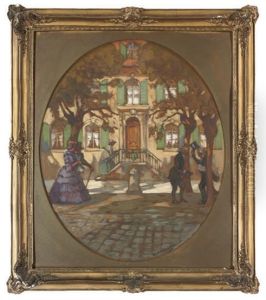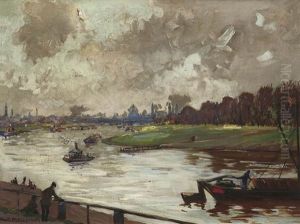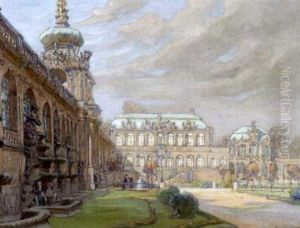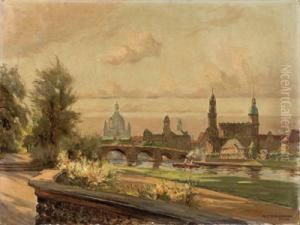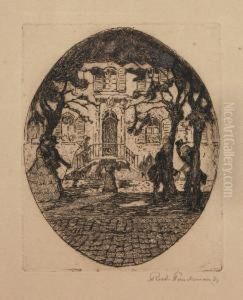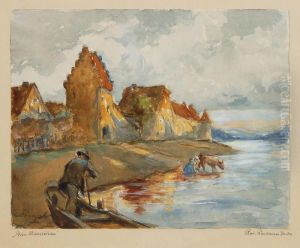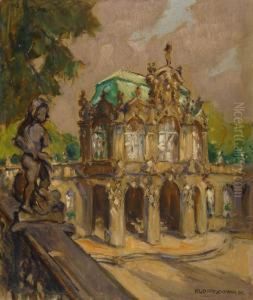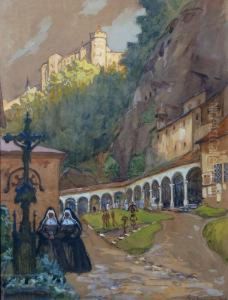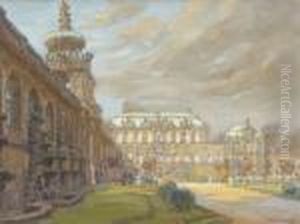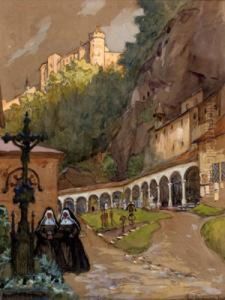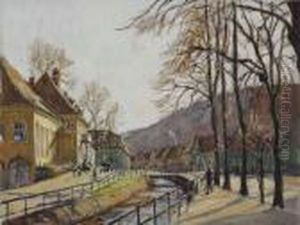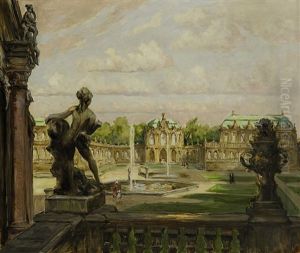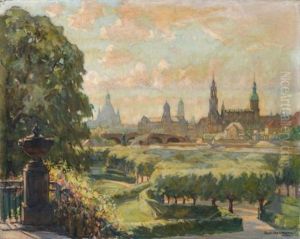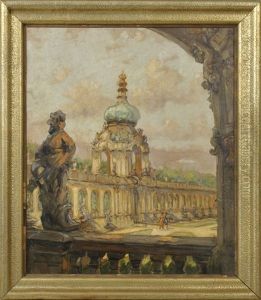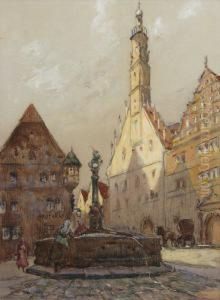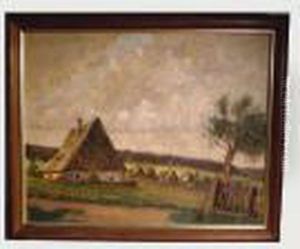Rudolf Poeschmann Paintings
Rudolf Poeschmann (1878-1954) was a German architect known for his contributions to the architectural landscape of the early 20th century, particularly in Germany. Born into an era where architectural styles were rapidly evolving, Poeschmann managed to carve out a distinct identity for himself through his innovative designs and thoughtful integration of new materials and techniques.
Poeschmann's educational background in architecture provided him with a solid foundation in both the technical and aesthetic aspects of the field. He was deeply influenced by the prevailing architectural movements of his time, including Art Nouveau and later, Modernism. However, he was not one to strictly adhere to the conventions of any single style. Instead, he sought to create buildings that were both functional and beautiful, believing that architecture should serve the needs of society while also uplifting the human spirit.
Throughout his career, Rudolf Poeschmann took on a variety of projects, ranging from residential buildings to public structures. One of his key strengths was his ability to adapt his designs to the specific requirements of each project, ensuring that each building not only fit its intended purpose but also contributed positively to its surroundings. His work is characterized by clean lines, the use of natural light, and a harmonious balance between form and function.
Despite his contributions to the field of architecture, Poeschmann's work was somewhat overshadowed by that of his more famous contemporaries. Nevertheless, he enjoyed a successful career and his buildings continue to be admired for their elegance and innovative design. After his death in 1954, Rudolf Poeschmann left behind a legacy that continues to inspire architects and designers, serving as a testament to his vision and creativity.
In addition to his architectural projects, Poeschmann was also involved in academic circles, teaching and sharing his knowledge with the next generation of architects. His writings and lectures contributed to the discourse on architecture in Germany, advocating for a thoughtful approach to design that considers both aesthetic values and social responsibility.
Rudolf Poeschmann's life and work reflect a dedicated pursuit of excellence in architecture. His contributions may not have garnered the same level of recognition as some of his peers, but his influence on the architectural landscape of the early 20th century remains significant. Through his buildings and teachings, he championed an architecture that is both beautiful and beneficial to society, a vision that continues to resonate in the field today.
